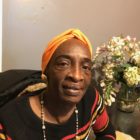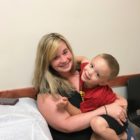Lost Lives: Son’s Death Becomes A Mother’s Resolve To Stop Urban Gun Violence
|
Janet Rice’s home is filled with pictures of her son, Shane Oliver, a tall, gregarious man who never began a day without checking on his grandmother and never ended one without having a long talk with his mother. He was 20 when he was fatally shot, just a few minutes from the family’s Hartford home. “He was my only child and my best friend,” Rice said. Today Rice is the outreach coordinator for Fairfield-based Connecticut Against Gun Violence, work in which she believes her son shares. This summer has been a particularly difficult time to be working against gun violence in Connecticut.







